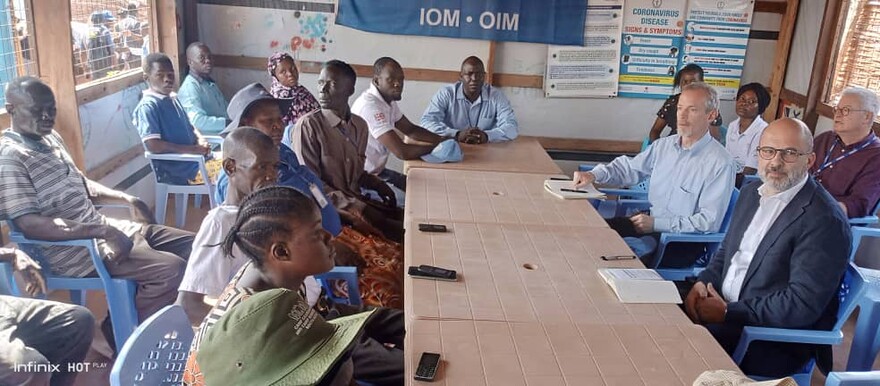The internally displaced people at Wau’s Naivasha camp in Western Bahr el Ghazal State have said they cannot return home due to insecurity and lack of basic services.
The displaced persons voiced their concerns during the visit of the Special Adviser of the UN Secretary-General on Solutions to Internal Displacement, Robert Andrew Pipe, to Wau on Monday.
Piper assured the displaced people of the UN’s commitment to work with the Government of South Sudan to address issues related to their voluntary return to their respective areas.
“I have just spent a little time in Naivasha Camp to listen to the IDPs. I wanted to understand what it takes to close a camp, to accompany people so that they feel safe that they are ready to start a new life. The messages were very clear from the IDPs; they need peace, they need safety above all, but they also need some support,” he said. “It is expensive outside there if they have to rent the house, if they have to rebuild a house because it was destroyed, they need help to rebuild that house. They need jobs and income so that they can start a new life again.”
“Very important messages about how we as a UN can support the government to make that a possibility,” Piper added.
Joseph Juma, one of the community leaders of the displaced people, asked the UN to urge the government to implement the peace agreement and provide basic services.
“Push our government to accept peace so that we can live in harmony in our country. The revitalized peace agreement is not being implemented,” he said. “If I chose to go out now, that means I have chosen to die. We see that the government is not serious in implementing the agreement and the whole world sees it too.”
Meanwhile, a 27-year-old mother of three children, Mary Atika, said since their homes were destroyed during the war, they have no money to go rebuild them and or rent houses.
“Some of us came to the camp when we were young and in school but have now wasted our time here,” he lamented. “We now have children and if we say we want to go back, how are we going to live because rent is expensive.”
Another IDP, Lual Deng, said his home was near the camp and he and his family fled into it when the war started.
“We were in the area very close to the camp and fled inside when the war erupted,” he said. “We now do not have houses, we do not have water and schools. If these things can be provided, our people are ready to go back home.”




